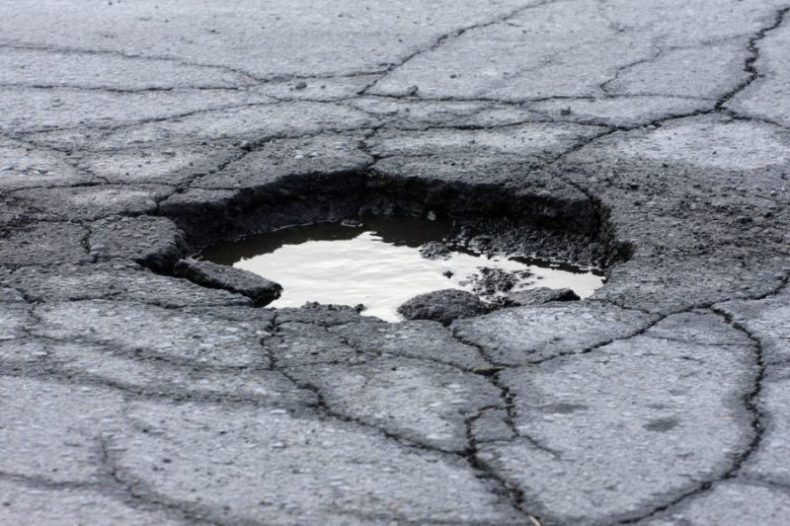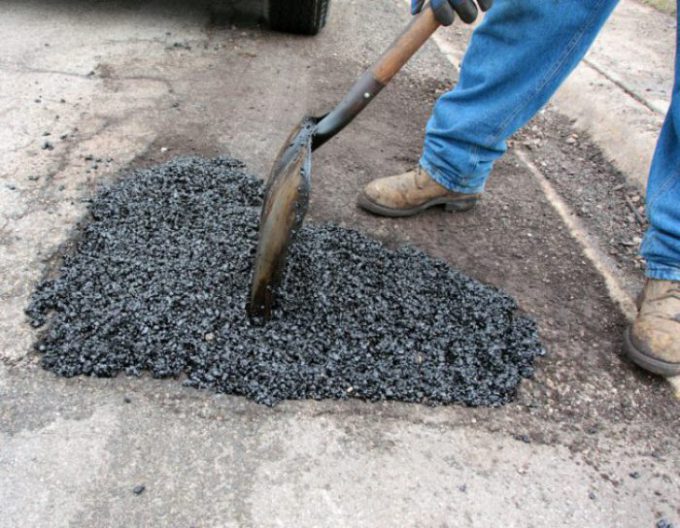
If your car’s been damaged by a pothole, you’re not alone. New research suggests at worst one in three drivers has suffered in this way; at best the figure is one in five.
And another annual study of the state of the nation’s roads paints a picture of a network that’s gradually crumbling. The report blames years of inconsistent funding combined with extreme weather conditions.
How many drivers have suffered pothole damage?
Research by Citroen UK claims that one in three drivers (32 per cent) has suffered pothole damage to their car. The car company says the average repair bill is £142.
However, a study by Insurethegap maintains the number is one in five drivers (21 per cent). That research also says that more than half of drivers (53 per cent) believe the condition of local roads is getting worse every year.
What is the state of our roads?
Every year, trade body the Asphalt Industry Alliance conducts a survey of local councils in England and Wales, asking about the health of our roads. This is its 26th annual ALARM Survey, enabling it to build a picture of how our roads are maintained year on year.
Throughout 2020, it found that on average a pothole was patched every 19 seconds. And it would cost the country £10.2 billion to carry out all the necessary road resurfacing work. That’s £49,573 per mile of local road.
More worryingly, this survey also found that around one in six local roads (16 per cent) has less than five years life remaining in it.
Why are our roads in such a state?
This year’s main conclusion from the ALARM Survey is that the government’s inconsistent approach to funding results in councils having to patch potholes as they appear. And a series of wet winters and hot, dry summers has left roads more liable to potholes in the first place.
Across England and Wales, total carriageway maintenance expenditure was £2.17bn, up last year compared with 2019. But it was still less than the £2.23bn reported from 2018.

Why is the funding a problem?
The funding local authorities have received for potholes has actually gone up since last year. In England and Wales government gave local authorities £752.6 million. But per authority, that still meant a £4.5m gap between what councils got and what they needed. Encouragingly, this shortfall has actually fallen since 2019.
But the inconsistency in the money they get from government prevents local authorities from doing proper planning when it comes to repairing their roads. In turn, that means they have to be more reactive when it comes to repairing roads. The result is more expense.
According to the ALARM Survey, it costs an average £44.68 across England (including London) and Wales to fill a pothole as part of planned maintenance. But when pothole repairs have to be reactive, this cost rises to £68.52 per hole, an increase of more than half the cost of planned works.
What about motorways?
The ALARM Survey quizzes local authorities about the roads they’re responsible for. Main roads and motorways are the domain of the government agency Highways England. Find out who is responsible for a pothole you’ve seen on this website.
How much do councils pay in compensation?
The average local authority across England received 408 claims for compensation last year. Eighty per cent of those were for pothole damage to cars, costing each authority £12.5m. In some cases, hitting a pothole might break a car’s suspension, but the damage is more likely to be a trashed tyre. Read here how you can go about claiming for pothole damage.
We’re supporting Highways England’s ‘Go Left’ campaign. If you break down on the motorway, remember to go left.

O.m.g the roads are ! Or should i say there are more potholes on my route everyday, than there is road all you are doing trying to drive round them disgusting,
I live in Scotland why do you only report on England and Wales? Our roads are horrendous
There is something seriously wrong with this country, I have driven in France, Spain, Belgium, Norway, Sweden, Denmark, Malta and Canada, and nowhere have I experienced roads like we have, is a disgrace
I drive at night for a living and what I don’t understand is they spend what must amount to millions putting mile after mile of cones out or even closing sections of motorway resurfacing roads that are not actually in need of it, but the roads that are littered with potholes, get completely ignored. If they were to pay more attention to the roads that actually need it, the compensation claims would surely be less hence giving them more money to spend. Maybe that’s just logical, but these clowns clearly do not apply any logic. Stop spending money on ‘smart’ motorways, which are in no way ‘smart’ and spend it where it’s needed.